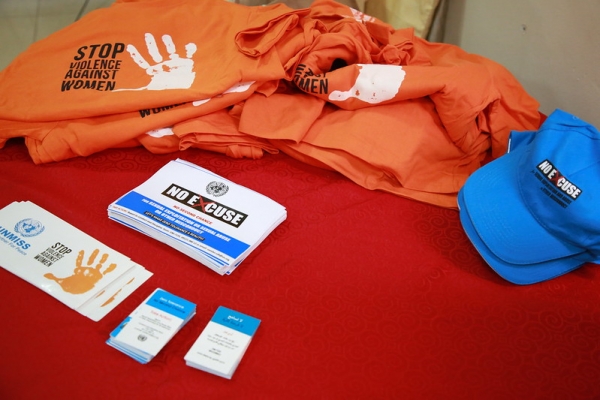Introduction
Sexual violence is always often used as a weapon or tactic in conflicts. In 2008, the United Nations (UN) Security Council adopted Resolution 1820, recognizing conflict-related sexual violence (CRSV) as a threat to security and peacebuilding. A year later, a Special Representative of the Secretary-General on Sexual Violence in Conflict (SRSG-SVC) was appointed. Resolution 1888 outlines his responsibilities, which include providing strategic leadership to the UN's efforts to address sexual violence in conflict. The Office of the SRSG-SVC prepares an annual report to the UN Security Council on conflict-related sexual violence (CRSV), which updates the Council on incidents and includes a list of perpetrators credibly suspected of CRSV violations based on UN-verified information.
Methodology
The factors taken into account vary, and some are very political, such as domestic political constraints. Information is collected and verified by the UN through the Monitoring, Analysis and Reporting Arrangements (MARA). This system collects anonymized information on CRSV cases, incidents, trends and patterns in armed conflicts, post-conflict situations and other situations of concern. Data is also collected through the Monitoring and Reporting Mechanism (MRM). The expert panels face several constraints in gathering evidence. They must meet high standards of proof, often corroborating each violation with three vetted sources. This can be challenging due to limited access to conflict zones, security concerns, and the reluctance of witnesses to testify. In addition, they work with limited resources, including budgets that don’t cover essential services such as translation.
Criteria
The criteria and procedures for listing and delisting are guided by the relevant Security Council resolutions, in particular 1960 (2010), 2106 (2013) and 2467 (2019). First, a "pattern" of violations should be recognized, not just isolated incidents. Second, violations include rape, sexual slavery and/or any other form of sexual violence. Third, to be removed from the list, parties must engage in dialogue with the UN to develop an action plan to end violations. Fourth, parties must demonstrate that they have ceased violations and have taken steps to prevent future occurrences, allowing the UN access to monitor and verify compliance for at least one reporting cycle.
Current Situation
There are 14 UN sanctions regimes, seven of which specifically refer to sexual and gender-based violence (SGBV), either as a stand-alone criterion or within broader criteria related to international humanitarian or human rights law. Among the countries sanctioned there are Libya and South Sudan. The decision to include SGBV as a criterion is often influenced by the political priorities of Member States. Addressing this crime is particularly important in contexts where national authorities do not promptly address sexual violence or where there are high levels of impunity. However, few parties are sanctioned despite evidence of high levels of sexual violence. As of April 2024, only 25 individuals and 2 entities have been sanctioned specifically for SGBV. This scarcity is due in part to the fact that SGBV designations are often included alongside other violations, rather than as stand-alone criteria. In addition, updates to sanctions narratives are difficult, and political opposition, particularly in contentious contexts, further impedes SGBV-specific designations.
Lack of Political Will
The main obstacle to sanctions designations for SGBV is the political will of Member States. In fact, the process is heavily influenced by politics rather than humanitarian or human rights considerations. Sanctions committees, which operate by consensus, - which is when Member States adopt the final draft of a resolution without taking a vote - rely on the political relationships and shared vision of their members. In some contexts, such as Haiti, successful SGBV designations are the result of shared views among committee members and the host State. On the other hand, designations are more complicated if there is political opposition and lack of consensus. In more politically divisive States, such as Sudan or cases involving ISIS, Member States often avoid proposing designations that they believe will not achieve consensus, particularly because of anticipated opposition from powerful States such as Russia. Political opposition may also derive from broader concerns about the impact of sanctions on development or specific opposition to SGBV-related designations.
International Recommendations
The report makes a number of recommendations. For member states, it recommends that SGBV be included as an explicit criterion in all sanctions regimes. Moreover, more resources should be devoted to investigating and reporting on SGBV violations, such as organizing field visits by the committees to improve their understanding and decision-making. This should create a permanent capacity within the UN to engage with designated parties to promote compliance and facilitate delisting. For the UN Secretariat and the Panel of Experts, it is recommended to develop a platform for regular information exchange and coordination between the Office of the SRSG-SVC and the Panel of Experts, a process between incoming and outgoing Panel members to ensure continuity and effectiveness. In addition, more comprehensive training on SGBV issues should be provided to the Panel of Experts to ensure that they are well equipped to address such violations and to strengthen the expertise of the SRSG-SVC within the Department of Security Council Affairs.
_____
To read more, visit:
- UN_Tools-for-Addressing-CRSV.pdf (ipinst.org)
- Resolution 1820 (unscr.com)
- Resolution 1888 (unscr.com)
- Resolution 1960 (unscr.com)
- Resolution 2467 (unscr.com)
- How Decisions are Made at the UN | United Nations







